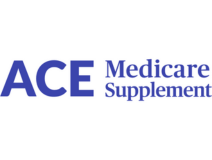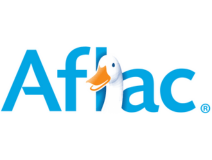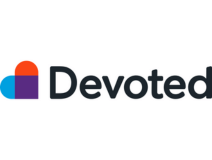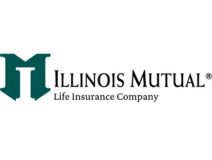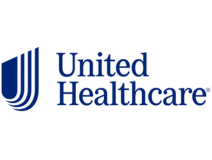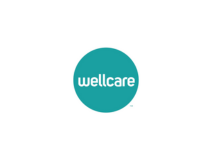Seniors Living Healthy – Episode 9
Commonly Purchased Products for Beneficiaries
Nick: Hello, and welcome to season two, episode three of Seniors Living Healthy. As always, I’m Nick, I have my co-host, Zach here.
Zach: Hey, folks.
Nick: And in episode three, we are going to discuss commonly purchased products for Medicare beneficiaries, why that is, and how they work. Zach, fire away.
Zach: So, the first one we’re going to explore a little bit is the one that—like I said, if we had a nickel for every time someone asked about this, we’d retired ten years ago.
Nick: Absolutely.
Zach: Dental-vision-hearing plans. Um, you know, a lot of people ask about those because they have them through work. They retire, then people, they get Medicare explained to them. They’re, kind of like, “Oh, I’m missing some dental and vision.” Kind of explain there what Medicare covers when it comes to dental and vision, and how a dental-vision planning can plug into those gaps.
Nick: Yeah. So, it’s important to remember that Medicare does not cover routine dental and vision services, Zach, right? And what I mean by routine is non-medically necessary, right? So, for those things like X-rays, for cleanings, for cavities, basic services, Medicare doesn’t cover. And the same can be said for vision, right? Those eye exams, those lenses, those frames, Medicare doesn’t cover, right?
So, the purpose of dental-vision-hearing policies is to come in behind Medicare, offer those basic benefits day one, right, and offer the mid-level benefits, you know, day one. And up until recently, major services, specifically on dental, weren’t covered, right; they had a one-year waiting period. You know, so we’re excited to announce that one of our large partners has just introduced a dental-vision-hearing product that has day-one coverage on major services as well. So, really not going too deep into benefits there, Zach, because all the plans differ. The thing to know is these plans are designed to cover basic benefits one hundred percent day one while also offering coverage for more major things, day one now in some instances, as well.
Zach: Yep. And so, you know, we are a seniors-geared podcast, but you don’t have to be a senior to buy these plans.
Nick: Absolutely. Yeah. So, the good news is, you know, we can sell dental-vision-hearing policies to anybody aged 18 to 89, right? And the thing to know is here, you do not have to have Medicare nor do you have to have any other type of insurance to purchase this policy. However, if you do have other insurance, this policy does not affect it back or forth one way or the other.
Zach: Yeah. And so, no kind of looking at people we do have on Medicare Supplements about how these policies can be bought, obviously, standalone policies, but we do have some companies that offer a discount if you sign up for them at the same time.
Nick: Yeah, so two things there. Number one, you know, most of the products that we sell, Zach—and we’re kind of guilty of being pigeon-holed here—are individual policies, right, whether it’s a Medicare Advantage plan, a Medicare supplement plan, a final expense plan, et cetera, they’re individual policies. However, you know, one of our providers actually allows us to sell policies to individuals, to individuals and spouses, individuals and children, and families, meaning two spouses and children. So, if you are not 65, you’re not Medicare eligible, and you’re needing insurance like this, you can buy this policy, too.
Zach: So, you’ve kind of touched on the different—the waiting periods, you know, there’s no real qualifications for this, there’s no health questions involved with it. Are there networks and things like that on these plans?
Nick: Yeah. So, you know, some of our providers have networks and some don’t. You know, I’m thinking of one of our providers, they are open access. Any dentist or eye doctor is allowed to bill them. However, it’s worth mentioning, you always want to make sure you are seeing a network provider when participating in a network-based policy because that’s where the lowest cost is going to be, right?
So, we do have plans that have no networks, they can be used nationwide, however, for all dental-vision products, you’re going to want to make sure you use a preferred provider whenever possible to get the lowest cost to you.
Zach: Yep. And something else kind of talking about adding on there, you know, most times these vision riders, they are—you know, they’re riders versus standalone, but if you’re on Medicare, if you’re diabetic, you’re covered vision-wise there. So, kind of wrapping up the dental and vision coverage, you know, these plans, they vary across the board, really any age can be when you pick those up. They don’t have to be in our senior market here. But their main goal is covering those cleanings, routine things that Medicare is not going to be medically necessary and pick up.
Nick: Yeah. And it’s also worth mentioning here, you know, there’s different types of policies, right? So, you know, yeah, if we get the highest-level policy with day-one major coverage, it’s not going to be so inexpensive, right, I mean, relatively speaking. However, you know, for those individuals that are just looking for basic services, right, there are some phenomenally affordable plans out there that offer two free teeth cleanings and corresponding exams each year, 80% coverage day one on basic services, like fillings, extractions, et cetera. So, if you’re wondering, you know, if A, you need this coverage, or B, if it’s affordable, reach out. You know, once again, our job is to ask the utilization questions, our job is to ask what your goals are, and then ultimately, we’ll try to match a plan to you that fits all or as much of your criteria as possible.
Zach: All right, Nick. So, kind of moving on down the line again there. Another big thing we see is cancer coverage.
Nick: Sure.
Zach: You know, a lot of people think, oh, well, cancer coverage, that’s mostly medical. Not necessarily; a lot of your costs with cancer is non-medical, which Medicare doesn’t—not going to take care of for you.
Nick: Sure, sure. So, you know, some of the things that we like to talk with people about this, Zach, is cancer coverage, a predominant amount of the cost actually isn’t covered by traditional health care, right? And what we mean by that is whether it’s travel expenses, going to MD Anderson in Houston, whether it’s lost wages being off work to be treated, whether it’s the cost of prescription drugs, which we’ll go over more here in a bit, et cetera, traditional insurance doesn’t pay these things, right? So, we recommend that all of our clients on Medicare pick up a $5,000 cancer policy to help pay those incidentals that Medicare does not.
Zach: So, you know, we know traditional health insurance doesn’t cover all costs with cancer there.
Nick: Mm-hm. Yeah.
Zach: So, why is it important for a Medicare beneficiary to have those coverages, cancer coverage?
Nick: Well, you know, Zach, let’s differentiate here. You know, so for those individuals that have Medicare and a Medicare Supplement, yes, their hospitalization is going to be covered it at a hundred percent. For those individuals, the 20% on outpatient treatment is going to be covered, you know, at a hundred percent. But what we’ve seen, we’ve seen a major shift in outpatient cancer care, over the last five to ten years, and really what’s happening is, they’re no longer burning people with radiation, they’re no longer doing these outpatient chemo treatments. What we’re seeing more and more is oral medications, right?
Oral medications and, you know, as we know, when you go to the pharmacy, they don’t give you your medicines until you pay for him. It’s unlike the emergency room, unlike the doctor’s room where they’re required to treat you and stabilize you before they can ask you if you have insurance. At the pharmacy, they will ask you and they will make you pay for your prescriptions. Now, that may not sound like much, but for those individuals that have Medicare and a supplement, their health care is covered, right?
But what about that tier-five script, right? On your prescription drug plan, you may be responsible for 25 to 40% of the cost of those tier-four and five drugs. You know, quick math here, Zach. If the drug is $1500 a month and you’ve got to pay 40%, that’s $600 you got to come up with or you don’t get it, right? So, what we’re seeing more frequently is a lot of those treatments are being out-of-pocket in the form of co-pays for prescriptions, right?
And keep in mind, you know, it’s not that often somebody takes chemo one time for one month, right? A lot of times these are recurring things, right? So, our goal is to make sure not only that we have their health care taken care of, but we want to give them a lump sum payment to help cover those incidentals, right? So, that would be for Medicare and Medicare Supplements. And it’s also worth mentioning that if an individual is on Medicare Advantage—you know, in episode two, we talked about those major medical deductibles.
So, not only did the people on major, you know—or excuse me on Medicare Advantage have to pay those prescription drug costs, not only do they have to replace lost wages, not only may they have to, you know, pay travel expenses, but they also are going to have to pay that major medical deductible, right? So, you know, if you’re getting treatments, you’re getting doctor visits, you know, 20% a pop adds up, right? So, we want to make sure that we’re giving them a lump sum cash benefit as well. First diagnosis, right? They submit that oncology report to the company, the company sends them a check—non-taxable, by the way—to help cover the costs and the deductibles that their insurance does not cover.
Zach: So, you know, talked about the dental, vision, and hearing—no real health questions. Who can buy cancer coverage? Are there, you know, there are health questions you have to go through for that?
Nick: There are health questions here, Zach. But another thing that I think it’s worth noticing is, you know, there’s been some major shifts in these cancer policies in our market over the last five years, right? So, as far as who can purchase these policies, right, you do not have to have Medicare to purchase a cancer or heart attack and stroke policy. And we can write those policies 18 to 89, right. And we can write them as an individual, individual and spouse, individual and children, or family, right?
But for the cancer policies, you have to qualify. And there’s differences there, right? Some states require you to be cancer-free for five years; some states require you to be cancer-free for ten years, and in between. But the good thing is unlike in the past where we had first occurrence policies, meaning if you had cancer in the past, even if you could qualify for the policy, it would not pay out for that particular cancer because it was not a first occurrence. You know, we’re happy to report that now we have multiple providers that will allow us to offer coverage, and as long as you can qualify, you can answer no to those health questions, whether it’s a reoccurrence of a past cancer or a new cancer, these policies will pay out in full.
Zach: Yep, yep. So, kind of wrapping it up here, you know, these cancer coverage, and you can add a heart attack and stroke rider on it that works the same way—first diagnosis—
Nick: Yep.
Zach: They are a lump sum, non-taxable payouts that are geared towards non-medical expenses that your Medicare or your major medical may not cover for you.
Nick: Absolutely, yeah. And you know, it’s very, very important. You know, and our goal—a lot of times when people are coming out of the workforce, you know, the things they’re thinking about is health insurance, and that’s great. But our goal is not just to take care of one of our customers’ needs, right? And we know for those individuals that are being diagnosed with cancer, that are utilizing these services, these plans are a lifesaver. And they’re extremely affordable, right?
So, if you’re out there, you have cancer in your family, you’re worried about that’s something that may attack you—I mean, recent statistics, right? One in two men, one in three women are going to be diagnosed with cancer in their life. And couple that with a vast majority of cancers are diagnosed in individuals 55-plus, you know, hello, this is our market, right? This is the Medicare market. So, it’s certainly something that we want to be talking to people about, it’s certainly something that we want to be educating people about. Give us a call at 844-437-4253. We can tell you about these products, help you get them quickly, painless, and extremely inexpensive.
Zach: All right, Nick. So, the last big complementary product we deal with a lot in our market, asked a lot about is final expense life insurance.
Nick: It’s the one insurance product, Zach, you’re guaranteed to use, right?
Zach: Yep, sure is. Hundred percent. You know, so what exactly is final expense life insurance?
Nick: Well, it’s, you know, a common thing that people ask is, you know, “There are multiple types of life insurance, right?” And final expense life insurance typically is a product that was designed in smaller face amounts for the middle-aged to older-age crowd with the single purpose of covering final expenses. But it’s worth noting there are no strings attached. This is a non-taxable benefit, right? So, we get people that want to leave final expense policies as a final tithe to a church. We get people that want to leave final expense policies to children, we get people, you know, that want to list any type of beneficiary on these types of policies, and that’s fine, but ultimately, the policies were designed to cover the final expenses when ultimately that time comes for all of us.
Zach: Yep. And one of the things I think is big on these types of plans are they’re simple is the best way to put it. You answer your health questions yes-no; you don’t have to go to the doctor to have an exam. You don’t have a doctor come to you for an exam.
Nick: Yep. So, you know, and back to insurance-speak here, but you’re spot on, right? They call that ‘simplified issue,’ right? And the simplicity is there is no medical exams. There is no doctor’s appointments, right? We ask you health questions, company pulls your medical records and if they match, they issue the policy on sight, right?
Zach: And another big plus to this is how the rates work and how the benefit amount works on these plans.
Nick: Yeah. So, easiest said and best said is rates never go up. Coverage never goes down. But just to further that, you know, going back here, these policies are guaranteed renewable, right? Meaning, when you buy a final expense policy, the rate that you purchase your policy at, never goes up, right?
So, kicker here, buy it young, it’s a lot cheaper, right? But not only does your rate never go up, your coverage never goes down, right? So, we hear people coming out of the workforce, they’ve had term policies. And that was all well and good. Their goals when they purchased those policies were righteous.
But now when you’re coming out of the workforce, you know, you’re probably further along than life when you are when you were younger. You no longer have that need for those massive term policies, right? At this point in life, we’re just looking for something to cover the final expenses. And that’s where these products come in.
Zach: Yep. So, looking at it, do these types of plans even have waiting periods?
Nick: Yeah, so great question. So, you know, we write life insurance with a number of different providers, right, here, Zach. I mean, we’re a broker and we get the pleasure of working with a number of the nation’s top-rated carriers. But the easiest way to answer this question is yes/no, right? And what I mean by that is, your health—you being the insured’s—health dictates whether the policy has a waiting period, right? So, we have providers that have policies that have waiting periods, that don’t have waiting periods. You know, our goal is to get you a policy without a waiting period, but that’s all dependent on your health.
Zach: Yeah. So, kind of, who can, essentially, buy a final expense? I know you touched on it a little bit, but who out there can buy a final expense policy?
Nick: So, for all of our providers, Zach, we can write final expense policies from the age of 40, right, all the way up to age 89, right, assuming you qualify for one of our health levels.
Zach: Yeah. And so, coming towards the end of it here, you know, one of the big things is, if you are on Medicare or a supplement, lot of the companies out there give you a discount if you—like they say on the commercials on TV—bundle them together.
Nick: Absolutely. So, you know, this is kind of new, right? I mean, one of our providers launched a new final expense product early last year, and basically, what it allows us to do if you are newly purchasing supplemental coverage with that provider and purchasing final expense coverage at the same time, they will offer a 20% plus discount for purchasing the final expense, right? But even better, if you’re already on Medicare supplemental coverage with this company, we can still offer you that same discount. So, the way that I really want to look and what I want to tell people is, if you’re on a supplemental plan, right, and you’re considering life insurance, give us a call because there’s a phenomenal chance that we can save you money on your Medicare supplement, then we can turn around and pay for your final expense coverage with the savings on your supplement, right?
However, if you’re new to Medicare, you’re coming out of the workforce, you’re coming off group benefits, right, and you’re losing that health insurance and the life insurance, there’s no time like the present to buy those two products together. 20% is 20%, right?
Zach: Yep. So, wrapping up final expense there, you know, average funeral is roughly $15,000 as of 2022—
Nick: Going up, isn’t it?
Zach: Yep, every year. So, you know, these are a whole life insurance policy, like you said. Premium stays, never goes up, face-value never goes down, locks it in. So, the younger you are, the better off it is. But it will be a lump sum payout to whoever your beneficiary is when something does occur to you.
Nick: Absolutely. Yes, sir.
Zach: All right guys, so we’re going to wrap up this last episode here, where we’ve gone over the three main complementary products that we deal with on a daily basis that work along with Medicare, whether it be dental-vision-hearing, cancer coverage, or final expense life insurance.
Hope you guys found this episode informative, answered a lot of questions for you, may have been able to open your eyes to some other options out there for you. If you got any more questions, concerns, want to look into some options for you, we’d love to talk to you give us a shout 844-437-4253, or you can email us at [email protected] or [email protected]. And again guys, thanks for tuning in. Look forward to talking to you next time.
Nick: Take care.

